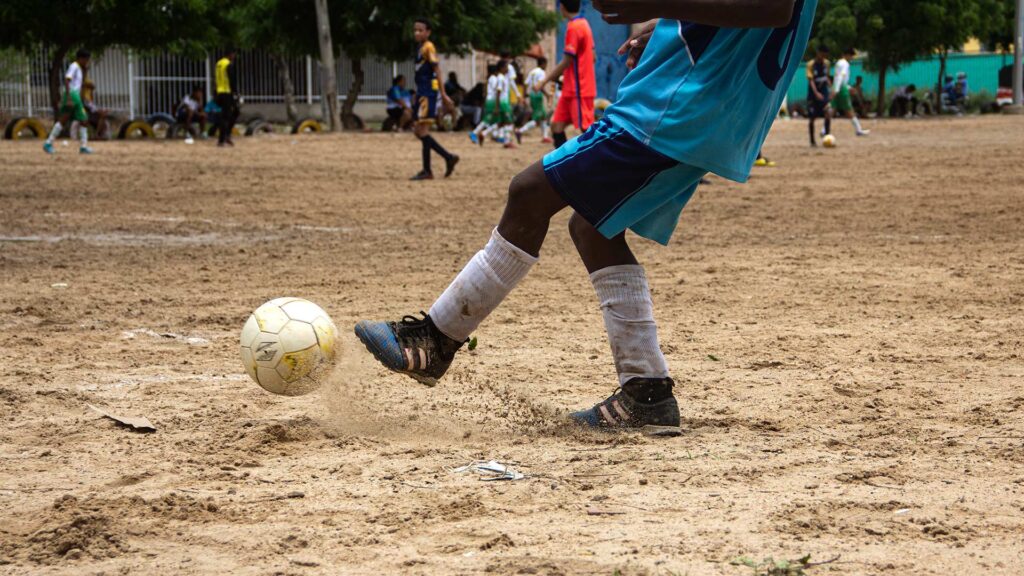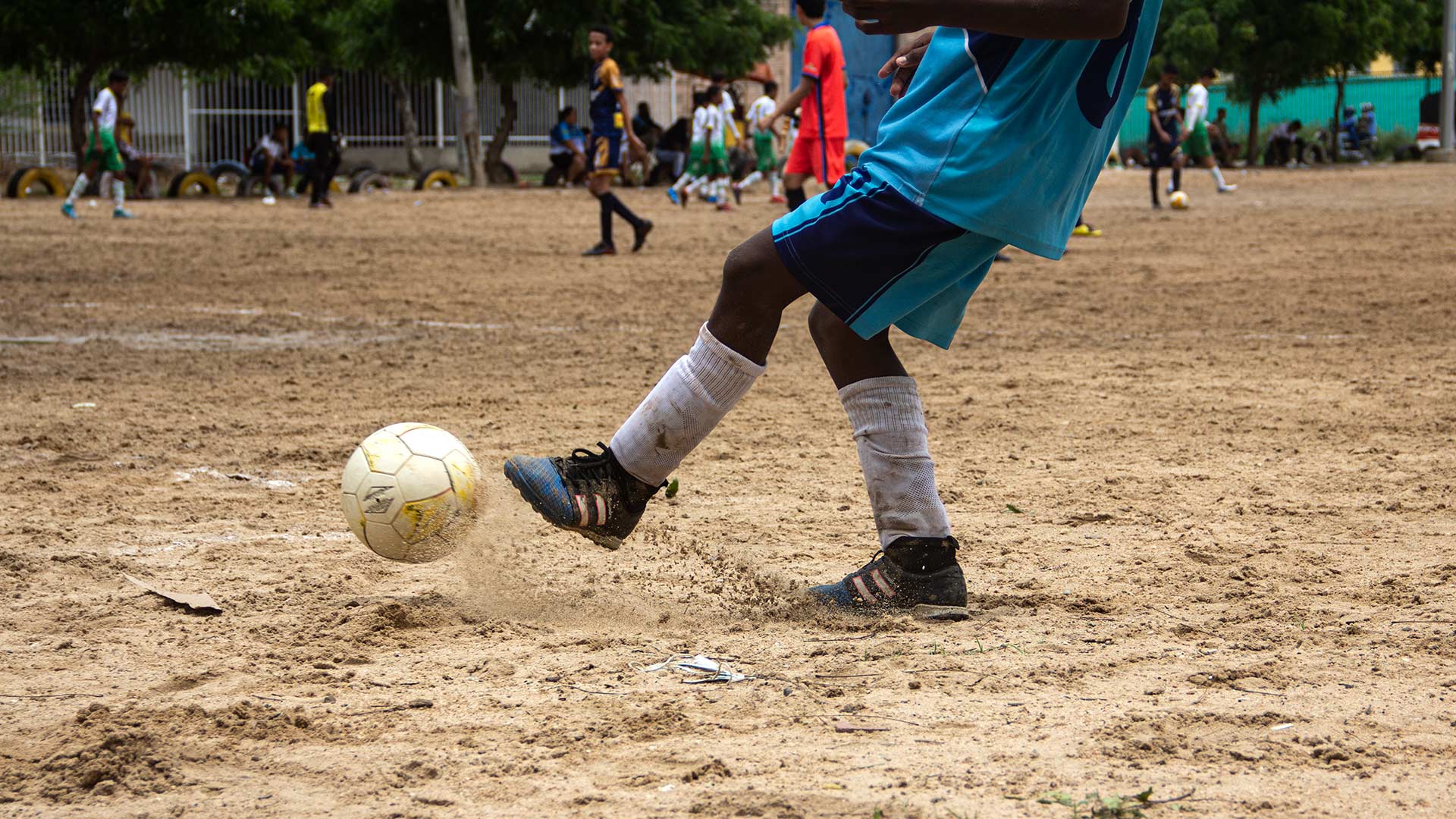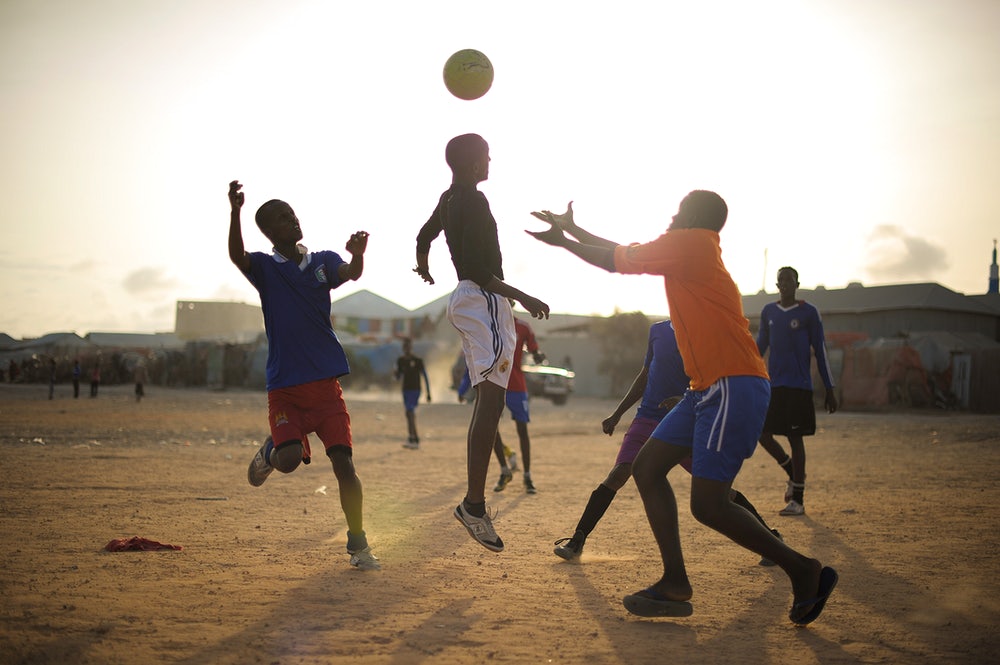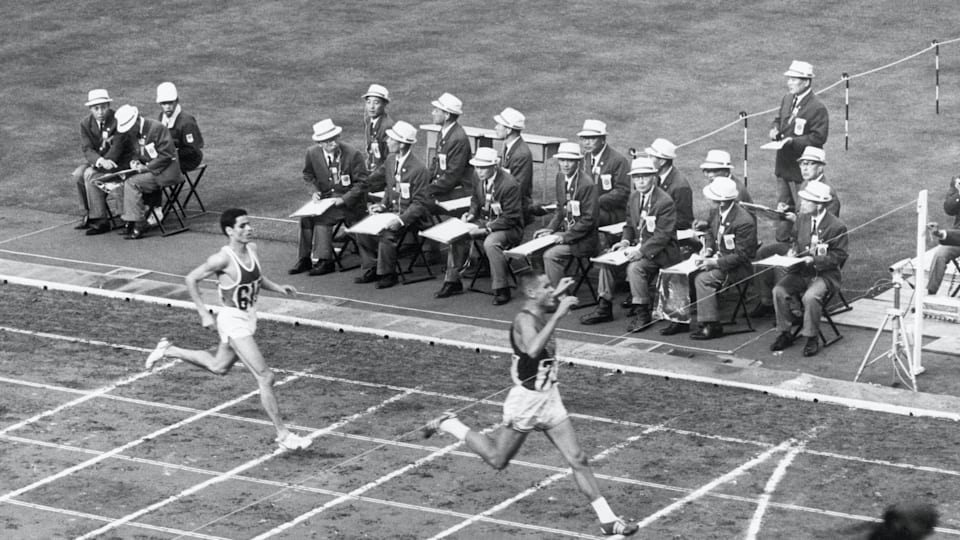An essential component for the psychophysical development of human beings, sport has always played a decisive role in our social and family culture, thanks to its educational function.
The anthropologist Marcel Mauss defines the practice of sport as “a social fact”, that is, a complex of activities that includes different areas, ranging from purely sporting to politics.
Sport is the mirror of our society, capable of transmitting more or less virtuous life models and behavioral practices. It therefore represents an important training moment, both from a motor and psychological-emotional point of view, capable of actively contributing to the formation of the personalities of the subjects involved.

Nonetheless, it is not enough to do sport to grow well: for children, sporting activity must represent a moment of play and fun, without constraints or excess expectations, which allows them to understand that in life you can lose, even when there are you are committed to the maximum possible.
About our social experience, sport almost seems to represent an autonomous and distinct area, totally rooted in the economic and social fabric, which every day becomes more and more an integral part of the lifestyle of all of us.
Discipline is one of the values most linked to sports practice: to face training and competitions in the best conditions, every boy must necessarily lead a balanced, regular life, made up of healthy habits and rest.
This is an important factor, which helps young people to get used to structuring their time, control their character, and to respect the commitment made and the times required by it.
If you approach sports correctly, therefore, you can produce well-being in multiple aspects: health, cognitive growth, but also inclusion, and respect for different cultures.
Because sport is an educational tool
For children it is a game in all respects, which teaches them to listen, observe the rules, respect their classmates, and socialize; in adolescence, attention shifts to the physique, muscles, weight, and goals to be achieved.
A true educational agency, sport is therefore synonymous with commitment and perseverance, which puts each of us to the test, helping us to overcome limits and make dreams come true.
Today many young people are experiencing an identity crisis capable of triggering feelings of insecurity, vulnerability, and fragility. And it is precisely in a similar context that sport, as an educational vehicle, has a central role, since it trains people as such, even before athletes.
But if we talk about education about sport, we must not forget who is responsible for successfully carrying out such a mission.
This is how the figure of the coach therefore becomes central in the lives of the youngest: what a good sports educator is called upon to do, to best carry out his role, is to free the kids’ self-esteem from the result, to stimulate the assumption of responsibility and autonomy, to safeguard the right to make mistakes and then start again.
The coach becomes the third fundamental figure for the growth of the child, after the parents and the school, fulfilling at the same time the task of teacher, model, instructor, and entertainer.
Because sport has a social function
Nelson Mandela said “ Sport has the power to change the world. It has the power to arouse emotions. It has the power to bring people together like a few other things. It has the power to awaken hope where previously there was only despair.”
One of the foundations of sport is to force kids to live in a group, and then feel part of a specific social context.
This is considered by many sociologists to be one of the primary needs of each individual, without which they would not be able to live in a condition of normality and harmony with themselves.
There is no doubt that sport is a vehicle of inclusion, aggregation, and participation with a fundamental social role, which allows the development of skills and abilities essential for balanced growth.
Whether it is children, teenagers, adults, or the elderly, it represents a school of life, that never stops teaching new rules: being with others, sharing, and contributing to the achievement of difficult, challenging, but not impossible goals.
The common sense of belonging and participation are powerful weapons that, little by little, can bring about the change that has always been identified in sport, promoting greater economic and social cohesion, but also greater integration between the parts of society.
Less represented groups, people with disabilities, or those who come from disadvantaged backgrounds: sport, regardless of age, religion, or social origin, has a great aggregative value and promotes physical and social well-being.
Virtuous examples in difficult contexts
A right for everyone and which should not be denied to anyone, sport, as the Council of the European Union has repeatedly underlined, is a source and driver of social inclusion, as well as a tool for the integration of minorities and groups at risk of social marginalization.
This is the reason why many sports clubs and organizations promote, in a concrete way, processes of participation in sports that completely ignore people’s economic, social, and individual conditions.
The natural distinctions of language, color, and origin are fundamental to raising children who practice sports. In fact, in the game, there are diversities of roles and characteristics that, together, form the winning team.
In Italy there are many examples in which, through the values of sport and its ability to unite, we have tried to implement social innovation projects, to overcome the difficulties of aggregating young people who have physical disabilities or live in difficult contexts. .
- Sport and integration is a project born from the collaboration between the Ministry of Labor and Social Policies and the National Olympic Committee, for the promotion of integration policies through sport. Synergistic cooperation, born in
- aims to promote the social inclusion of the foreign population through sport and to combat forms of racial intolerance and discrimination;
- Vincere da Grandi was born from the collaboration of Coni and Lottomatica, to offer a free sporting, educational, and emotional experience to children aged between 5 and 14, who live in difficult contexts. The will that inspired the project is precisely that of concretely expressing the right to sport for all, supporting less well-off families and communities;
- OSO – Ogni Sport Oltre is the digital community that, through its platform, shares its stories, events, and information on associations and projects introducing people with disabilities to the sport. Promoted by the Vodafone Foundation, OSO aims to achieve concrete results on the national territory, making sport an opportunity for everyone.
Crowdfunding for social projects in the sports sector
An English term that means “crowd financing”, crowdfunding is a collaborative fundraising process, where a group of people use their own money to support a project, the result of the efforts of other individuals.
Therefore, it is a way to obtain financing through a solidarity mechanism, which pushes people, emotionally involved, to support the cause through a donation.
There are, however, different types of crowdfunding:
- Donation Crowdfunding, which does not provide any reward for the donor;
- Reward Crowdfunding, which provides a reward, in the form of a prize, following the donation made;
- Equity Crowdfunding, where the donor can effectively become a shareholder in the project he finances.
In the world of sports, crowdfunding has become a tool increasingly used by amateur and professional sports teams, who seek to raise funds useful for building bonds with the community and fans.
There may be various reasons why you choose to activate a grassroots fundraising campaign in the sports sector: the integration of marginalized children who live in difficult situations, the inclusion of disabled young people, the rehabilitation of abandoned pitches in the city outskirts, and support for the ASDs most in difficulty.
Furthermore, in this period of health emergency, we have witnessed a further crisis in amateur sport, caused by the lockdown which forced associations and clubs into forced closure, depriving them of the funds necessary to guarantee everyone’s access to sporting activity.
Precisely for this reason, the Movement for Ethics, Culture, and Sport has decided to activate the #PLAYURBAN fundraiser, with the support of ACSI, Lega Pro, Credito Sportivo and sponsored by CONI, CIP, and AS LUISS.
At the basis of the project is the profound belief that sport is a primary color in every boy’s life, without which he would lose many important nuances.
Hence, therefore, the desire to guarantee the right to sport to those who risk being left behind, activating a crowdfunding mechanism aimed at supporting the most difficult peripheral ASDs throughout Italy, to facilitate the inclusion of marginalized young people and those with disabilities, in this particular emergency phase.



